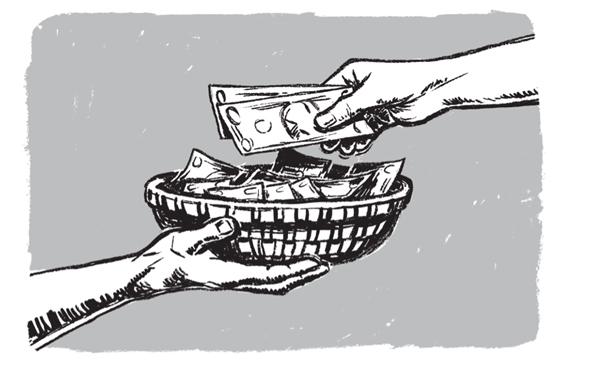- info@aabengaluru.org
- 080 2234 0444
- Mon - Sat: 09.00 am - 06:00
- Alcoholics Anonymous - Bangalore

One potential A.A. patron, however, when approached by the pioneering members for money, instead helped to lay the groundwork for A.A.’s Tradition of self-support: “I am afraid that money will spoil this thing,” said John D. Rockefeller Jr., while at the same time endorsing the work of the fledgling Fellowship.

This marked a turning point in A.A. history, and, as the reality of Mr. Rockefeller’s statement sank in and A.A. members began to see the truth in the old cliche, “Who pays the piper calls the tune,” the seed of the Seventh Tradition took root.
“We cannot skimp”




For more information, please click on this link hear View More

Alcoholics Anonymous is a Twelve Step Fellowship dedicated to helping anyone suffering because of their drinking. The Twelve Step programme is the suggested format for recovery from alcoholism and its effects.
Fill out the form to stay up-to-date with the latest news and updates.